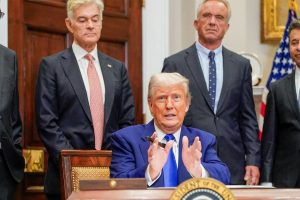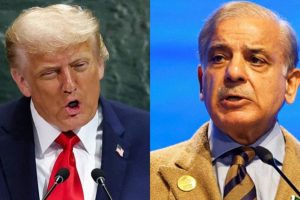Former US President Donald Trump praised a recent Supreme Court decision that limits the authority of individual federal judges to issue nationwide injunctions, calling it a major victory for executive power and the American people.
Speaking from the White House, Trump expressed gratitude to the justices, saying, “I am grateful to the Supreme Court for stepping in and solving this big and complex problem. They have made it very simple.” The ruling, he said, now clears the path for his administration to advance several stalled policies, including his controversial push to end birthright citizenship.
Calling the decision a “GIANT WIN” on social media and later in remarks to the press, Trump said it marked an “amazing decision” that would allow the executive branch to act more effectively. “Some of the cases we are talking about would be ending birthright citizenship, which now comes to the fore,” he noted, arguing that the policy was originally intended for the descendants of slaves—not those “trying to scam the system.”
Flanked by Attorney General Pam Bondi and Deputy Attorney General Todd Blanche, Trump declared the ruling a victory for constitutional governance. “It’s a victory for the Constitution, the separation of powers, and the rule of law,” he said, criticizing what he described as the “excessive use of nationwide injunctions” to disrupt executive policymaking.
Trump claimed that left-leaning judges had been using injunctions to block policies supported by a large segment of the electorate. “In recent months, we have seen a handful of radical Left judges effectively try to overrule the rightful powers of the President… That was a grave threat to democracy,” he said, noting that his administration had faced more nationwide injunctions than the entire 20th century combined.
Trump also used the moment to reinforce his hardline stance on illegal immigration. “We have to act quickly. We have murderers, killers, drug dealers coming in. What they have done to our country should never be forgotten,” he said, reiterating the need for stronger enforcement at the border.
The Supreme Court’s decision is expected to have far-reaching implications on how future presidential administrations can implement policies without judicial roadblocks from lower courts.





